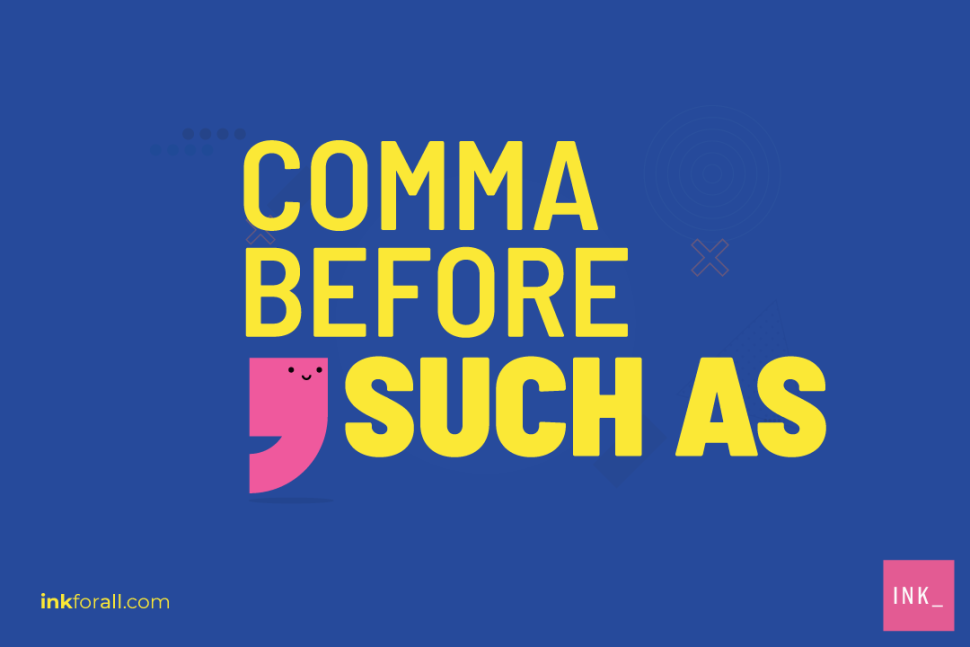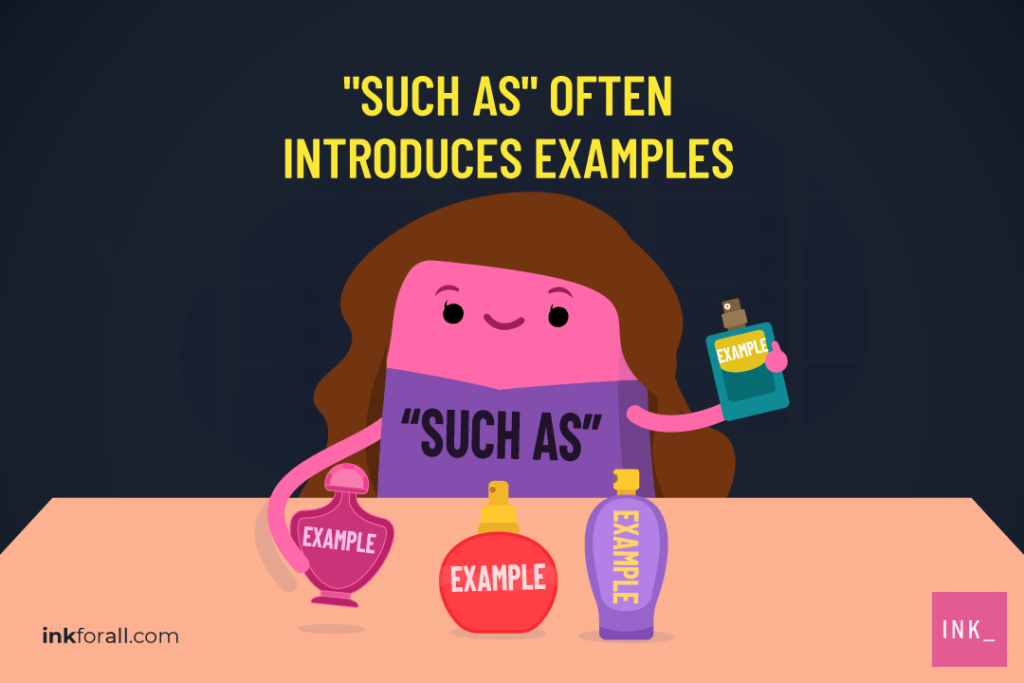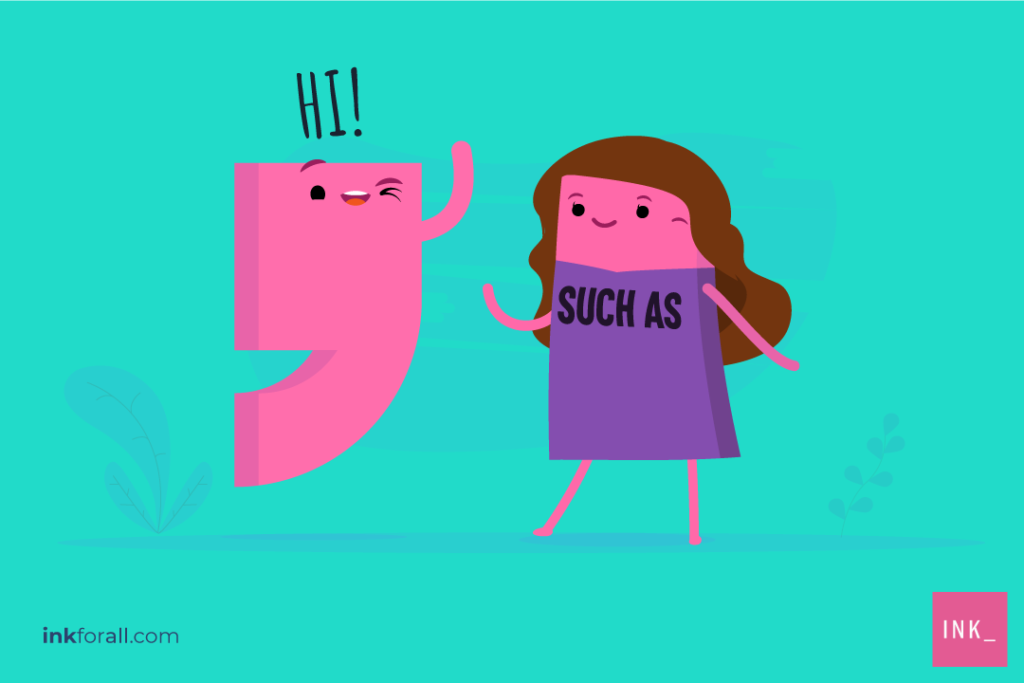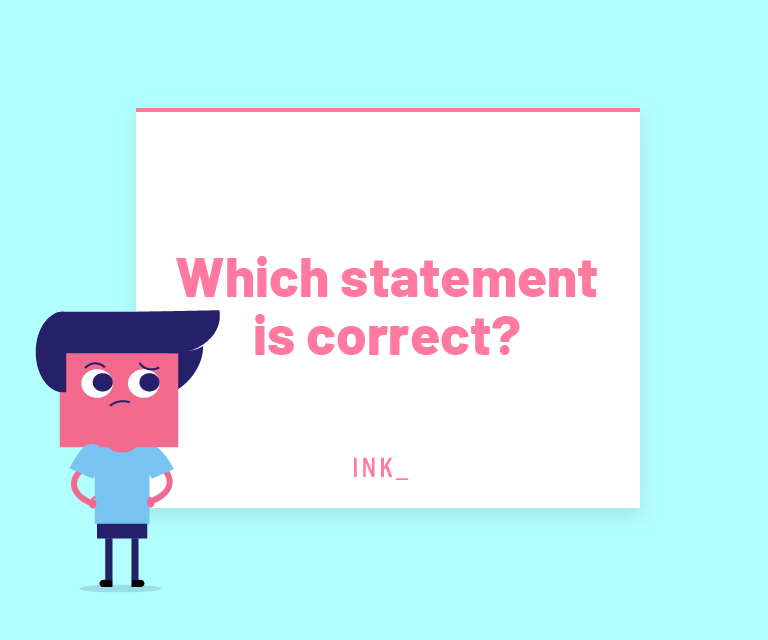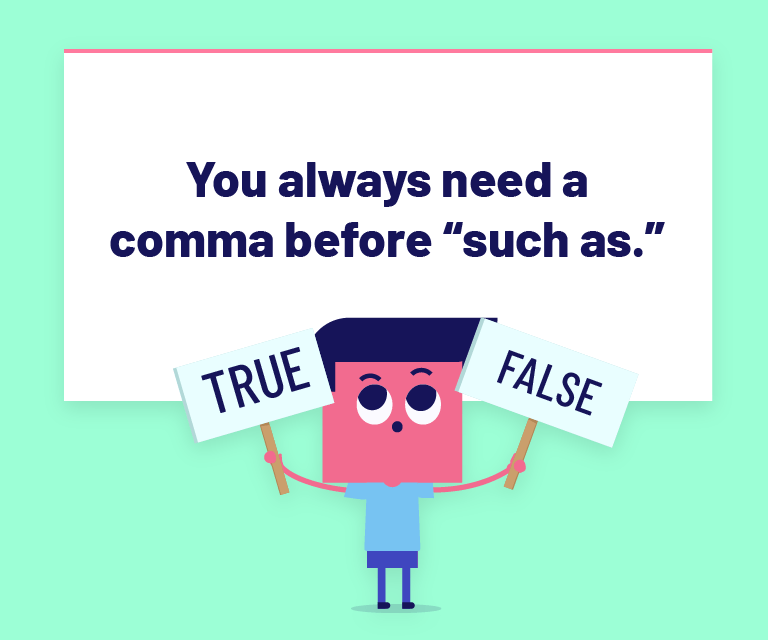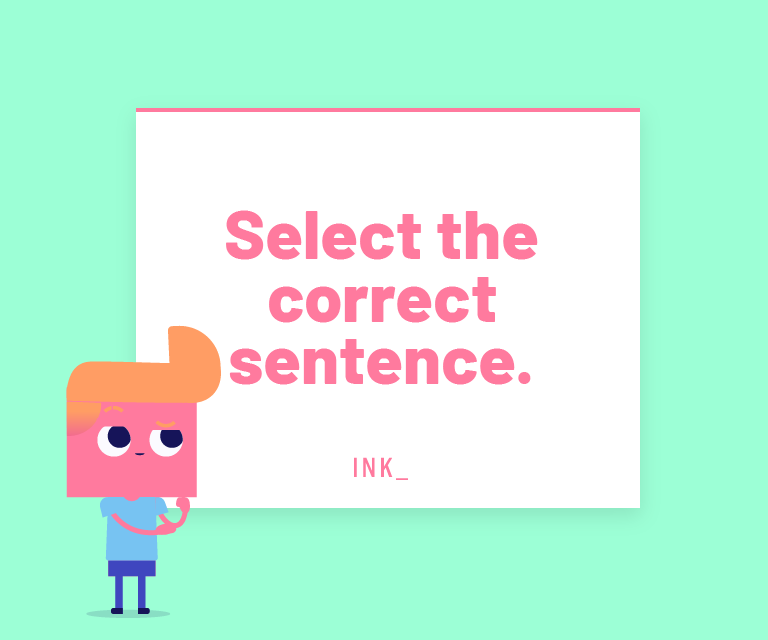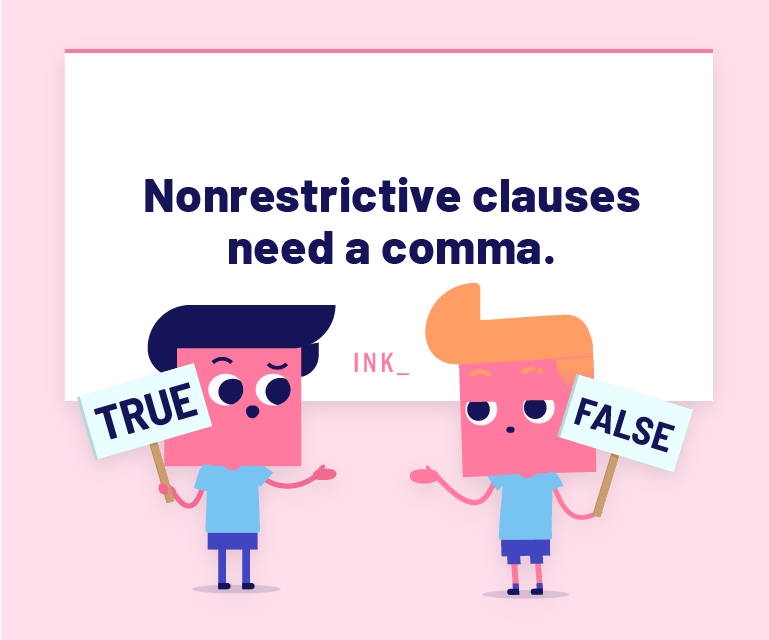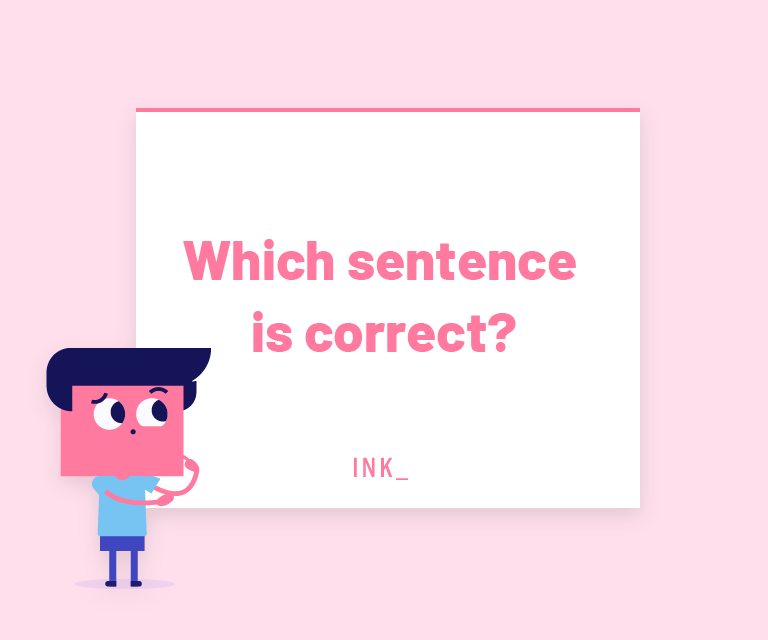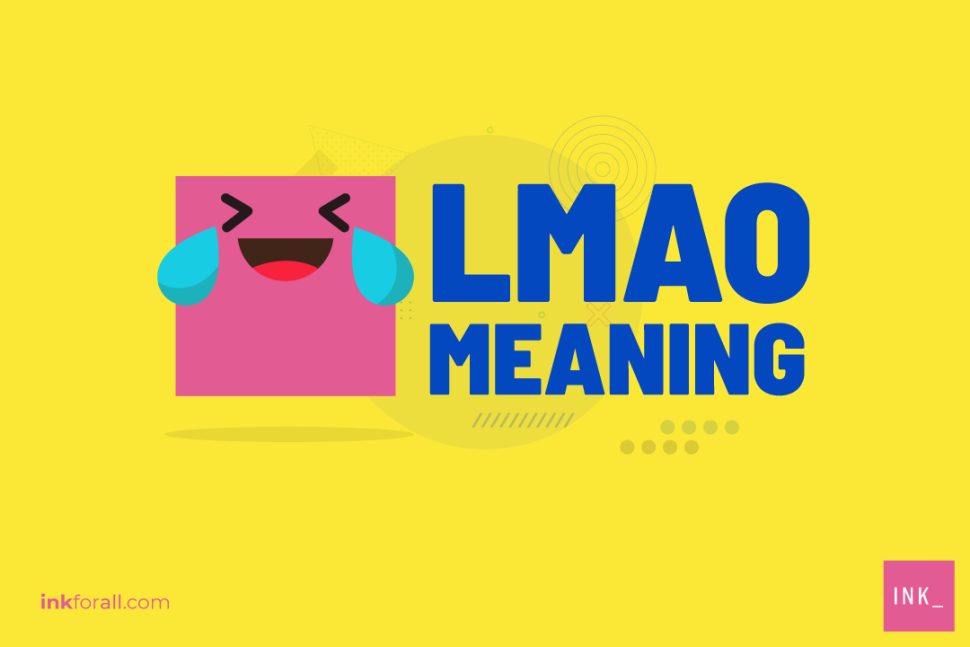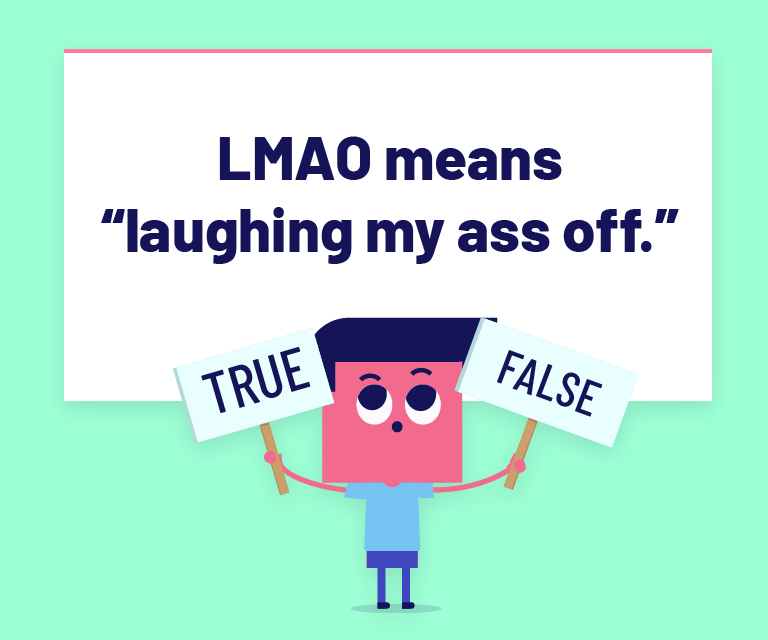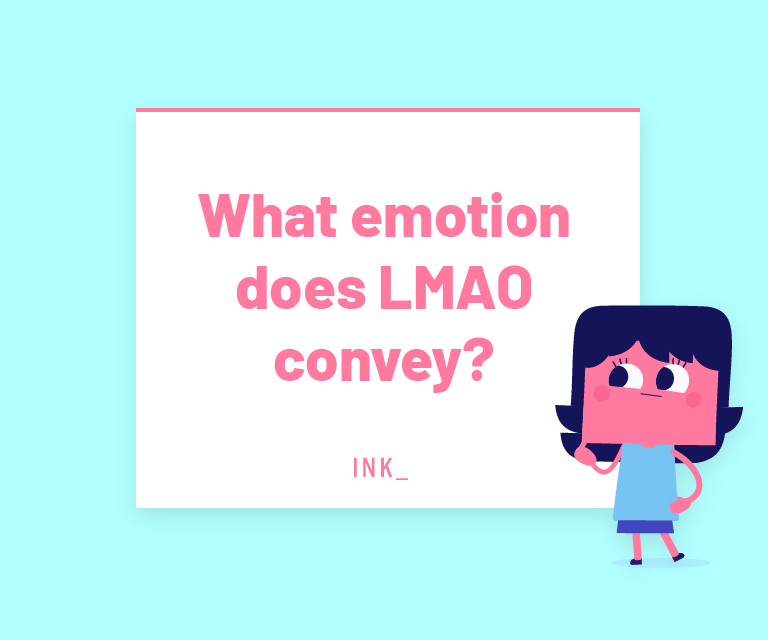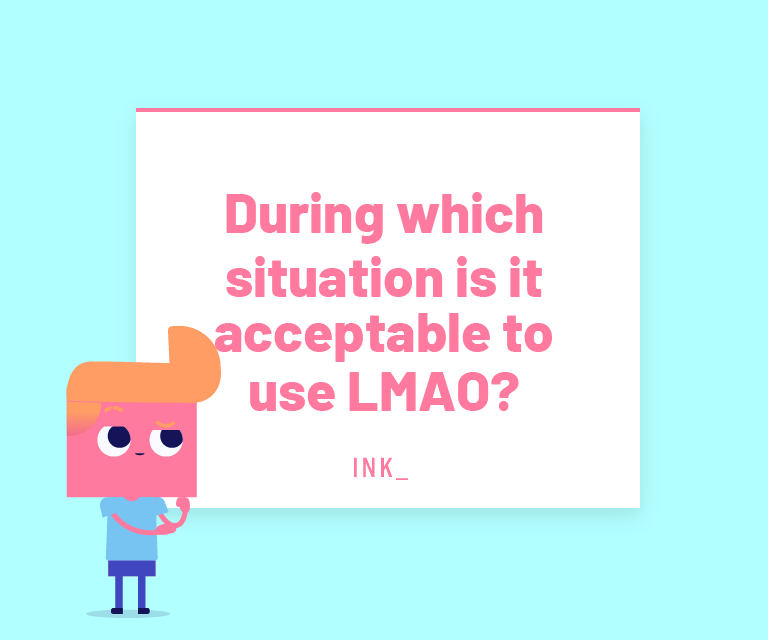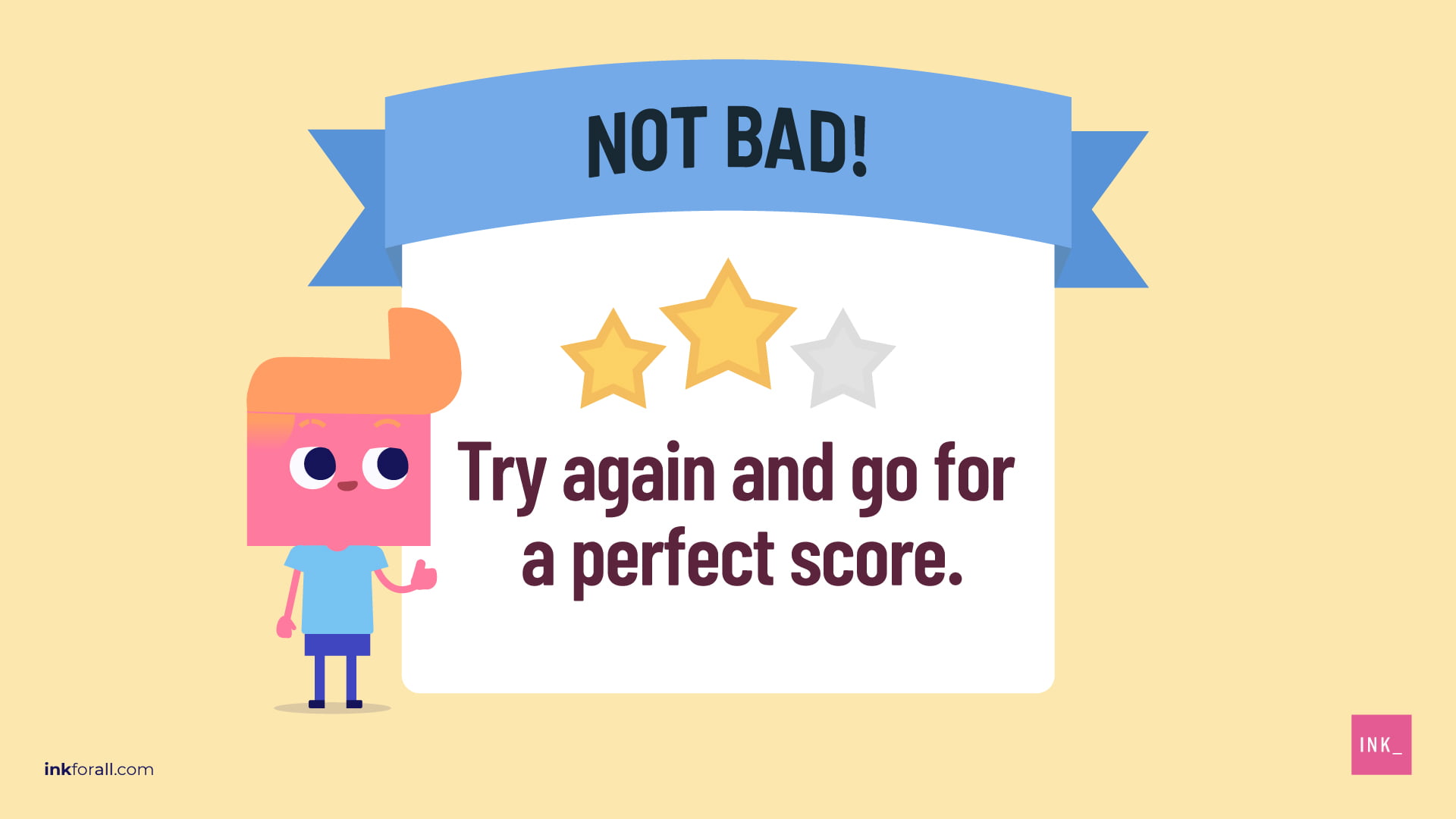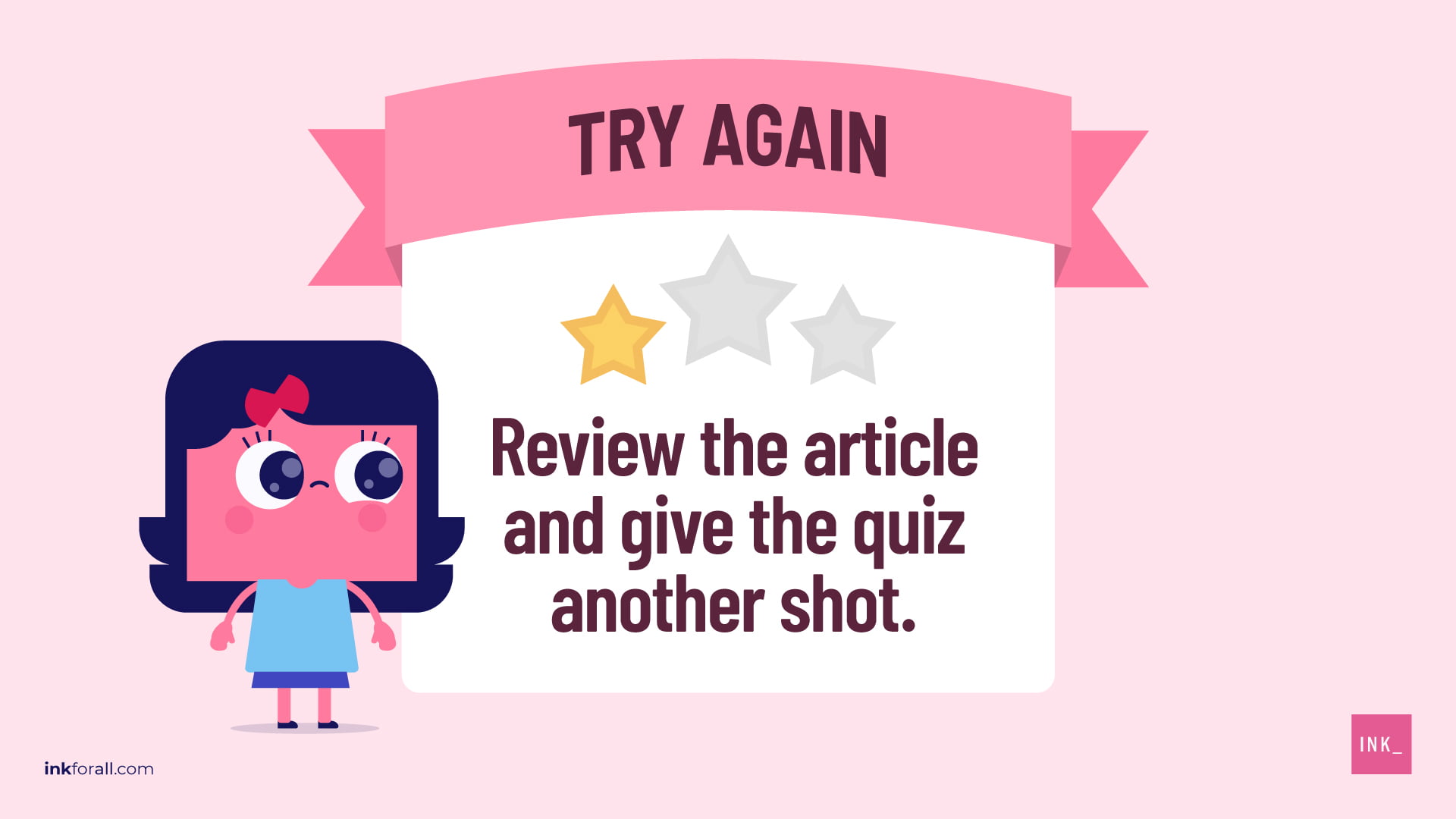Who and whom are two words that sound very much alike. However, that similarity just makes when to use who vs. whom all the more confusing.
Main Who vs. Whom Takeaways:
- Who and whom are both pronouns.
- When you’re referring to the subject of the sentence, use who.
- Confirm you’re using the correct pronoun by replacing who with she/he/they.
- When your’re referring to the object, use whom.
- Confirm you’re using the correct pronoun by replacing whom with her/him/them.
- Sometimes you may have to break the who or whom rule to make your content more readable. Or, to prevent awkward and unnatural phrasing.
In this super easy guide, we’ll show you a few simple tricks to remember the difference and use both pronouns like a pro, every time. Also, you’ll see both in action with tons of who vs. whom examples. Don’t forget to test your skills with our quick quiz at the end of this article.


How Do You Use Whom?
You should use whom to refer to the object of a verb or a preposition. Here’s a quick and easy trick to be sure whom is the correct pronoun to use: Replace whom with him or her. If the sentence still makes sentence and is grammatically correct, thenyou know whom is the correct choice.
On the other hand, if he or she sounds better, then you should use who instead. You can remember this trick by associating the “m” in him with the “m” in whom. Another clue is to look for a preposition. For example, whom usually follows a preposition.
How Do You Use Whom in a Sentence?
Here are examples of how to use whom in a sentence:
What’s the Difference Between Who’s and Whom?
Aside from spelling, who’s and whom have different functions in a sentence. To begin with, who’s is a contraction. Meaning, it’s a two-word term joined together by an apostrophe. It could mean who is or who has. On the other hand, whom is a pronoun and often acts as the object of a verb or preposition.
Here are some examples of how to use who’s in a sentence:
Who vs. Whom: They/Them?
Just like you can use he/him to confirm whether to use who/whom, you can also use they/them. This is because who and whom can represent singular pronouns like he and him as well as plural pronouns like they and them. For plural pronouns, replace who with they. If the sentence is still grammatically correct, then you know that who is the correct pronoun. Conversely, if them sounds better, then you know that whom is the correct pronoun to use.
Who vs. Whom Example Sentences?
1. Is Many of Whom Correct?
Yes, the phrase many of whomis correct to use whom instead of who. This is because you should use whom to refer to object of a verb or preposition. Since of is a preposition, whomis the correct pronoun to follow it. Another way you can confirm if whom is correct is to replace it with another pronoun like him, her, or them. If the sentence is still grammatically correct, then whom is correct.


2. Who or Whom I Worked With?
The ideal answer is with whom I worked. Whom goes with the object of the verb or preposition in a sentence. Since this phrase contains the preposition with, the most correct way to craft this sentence is using whom. Test if whomis correct by replacing it with him. Does the sentence still make sense? Then whom is the best pronoun to use.
3. Who I Live With or Whom I Live With?
Whom I live with or with whom I live are the correct ways to phrase this. The rule is that who refers to the subject of the sentence while whom refers to object of the verb and or the preposition. Here, we have the preposition with and the verb live. Both of these refer to the person you live with, not the subject of the sentence (I). For this reason, whom is the correct pronoun. Confirm this by rewriting the sentence to use the pronouns him/her/them. If the sentence is still correct, then you know that whom is the correct choice.
4. Who I Admire or Whom I Admire?
Here, the correct answer is whom I admire.This is because we use whom to refer to the object of a preposition or verb. In this phrase, there is no preposition. However, there is a verb: admire. Whom is the object of this verb. In other words, whom receives the action of you admiring. You can confirm that whom is correct because you can replace it with him and the sentence is still grammatically correct.
5. Who I Hate or Whom I Hate?
For this example, whom I hate is the correct phrasing. This is because whom usually refers to the object of a preposition or a verb. We don’t have a preposition in this phrase. But, we do have the verb hate. What’s more, whom is receiving the action of hate. This makes whom the object of the hate.
Since whom is used for the object of a verb, we know that whom is the correct choice here. Confirm this by replacing whom with her or him. If the sentence is still grammatically correct, then whom is the right pronoun to use. If not, then you should use who.


6. Who or Whom Did You See?
Even though you often hear who did you see in everyday conversations, the most grammatically correct answer is whom did you see. Whom refers to the object of the preposition or verb in a sentence. This sentence doesn’t have a preposition, but it does have a verb: see. What’s more, this verb refers to the person you saw (the object), and not you (the subject).
Usually, who refers to the subject. Since whom refers to the object of a verb, it’s the correct pronoun to use in this sentence. One way to confirm this is to rewrite the sentence using him or her. If the sentence is still correct, then you confirm that whom is the correct pronoun.
7. Who or Whom I’ve Never met?
The correct phrasing here is whom I’ve never met. The reason is that whom typically refers to the object of a sentence’s preposition or verb. In other words, whom receives the action.
On the other hand, who usually refers to the subject. This phrase doesn’t feature a preposition, but it does have the verbs have and met. Have is a linking verb, so it’s not showing any action.
However, met is an action verb and is acting on whom. As a result, whom receives the action. The verb met refers to the object (whom) and not the subject (I). Therefore, we know that whom is the correct pronoun. Verify this by rewriting the sentence to substitute whom with she or he.
8. Who We Miss or Whom We Miss?
Whom we miss is correct, not who we miss. Who refers to the subject whilewhom refers to the object of the preposition or verb. We is the subject.
However, the verb miss doesn’t refer to the subject we. Instead, it refers to the person you miss. This means that the person you miss is an object of the verb miss. For this reason, whom is the correct pronoun to refer to the person you miss.
Test this by rewriting the sentences to replace whom with the pronouns him, her, or they. Is the sentence still grammatically correct? If it is, then the correct answer is whom. If it’s not, then you should use who instead.
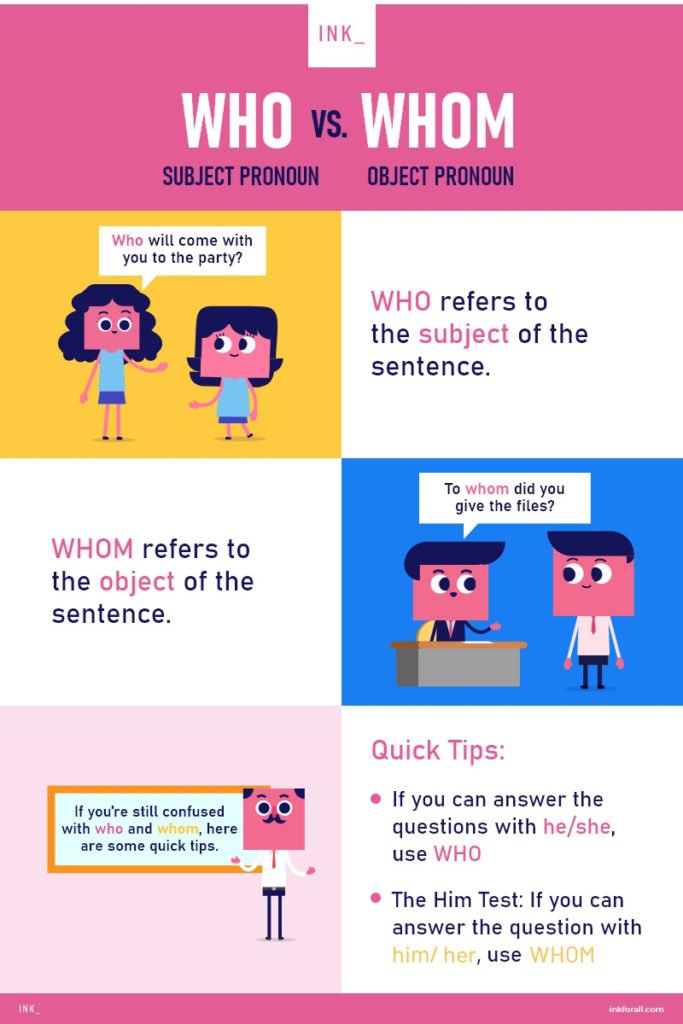

9. Who or Whom I Love so Much?
The correct way to phrase this whom I love so much,not who I love so much. We know that whom is correct because this pronoun refers to the object of a preposition or verb. We may not have a preposition, but we have the verb love. This verb refers to the person being loved (object), and not the I, or the person doing the loving (subject).
Since who refers to the subject while whom refers to the object of the verb, whom is correct. Check that whom is the correct pronoun by rewriting the sentence with him,her, or them. If the sentence is still grammatically correct with one of these other pronouns, then you know whom is correct. However, if he, she, or they fit better, then you know who is correct.
10. Who or Whom Wants Ice Cream?
Who wants ice cream is the correct way to phrase this sentence. The best way to confirm that who is the correct pronoun is to replace it with he/she/they. Does the sentence still make sense? Is it still grammatically correct? If yes, then you know who is correct. If no, then you should use whom.
What’s more, use who to refer to the subject of the sentence. Another way we know that who wants ice cream is correct option is because the subject of the sentence is who.
11. Is it “Who to Ask” or “Whom to Ask”?
The grammatically correct way to phrase this is whom to ask. The phrase to ask really means should I ask. Whenever we need a pronoun that refers to the subject, we use who.
However, when we need one that refers to the object of a preposition or a verb, we use whom. Here, the implied verb shouldrefers to implied subject I. So, now we need a pronoun to go with the verb ask.
Sincewhom refers to the object of the verb and not the subject, we know that whom is the correct pronoun. An easy way to confirm this is to rephrase the sentence using him/her/them. These work as substitutes for whom while he/she/they work for who.
12. Who to Follow or Whom to Follow?
Although the majority of people would probably say who, whom to follow is correct. This is because the phrase to follow actually means should I follow. Therefore, the implied verb should refers to implied subject I.
Since we use who to refer to the subject, we can rule out who. Instead, we use whom to refer to the object of the preposition or verb. Specifically, we need an object for the verb follow. This is why whom is the correct answer.
Easily verify this is by rephrasing the sentence using him/her/them. You can use these pronouns as substitutes for whom and the existence will remain correct. Similarly use he/she/they for who.
13. Who Should you Invite to the Party?
Even though most people would use who, the grammatically correct way to phrase this sentence is Whom should you invite to the party. The trick to know with certainty that the answer is whom is to rephrase the sentence using him/her/them. This is because we use whom to refer to the object of a preposition or verb, and these pronouns can substitute whom.
Conversely, we use who to refer to the subject of the sentence, and he/she/they can substitute who. In this example, the verb shouldrefers to the subject you. However, we need an object for the verb invite. Therefore, whom is the best fit.
Whom: Death of a Pronoun
Many modern grammarians consider whomto be a dying word.
It wouldn’t be the first pronoun to fall out of use, either. Others that have gone before it include thy, thine, ye, and thee. Although they may still show up in religious writing, they’ve fallen out of common use.
Who vs. Whom Recap
Ask yourself the following:
- Are you referring to the subject of the sentence? If so, use the pronoun who.
- Is the object of the sentence what you’re referring to? If so, use the pronoun whom.
Here’s a trick that you can use if you get stuck. When deciding on whom vs. who, think of it as him vs he.
- If you can answer the question with “he,” you’ll want to use who—no “m” at the end!
- However, if you can answer the query with “him,” you’ll want to use whom. They both have an “m” at the end!
But wait! What if you’re talking about a lady instead of a gentleman? No worries—we only used “he” or “him” because it makes it easier to highlight the “m” connection. While “whom“or“him” is a quick and memorable mnemonic device, the same idea applies to “she” or “her.”
- If you can answer the question with “she,” you’ll want to use who.
- On the other hand, if the answer to the question is “her,” you’ll want to use whom.
Ready to Dominate This Who vs. Whom Quiz?
Whom Question #1
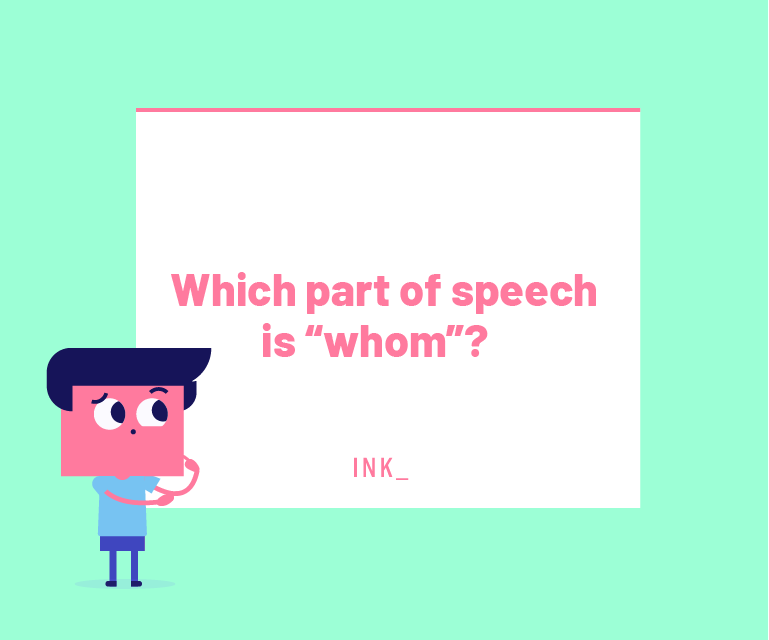

The answer is B. “Whom” is an interrogative pronoun.
Who Question #2
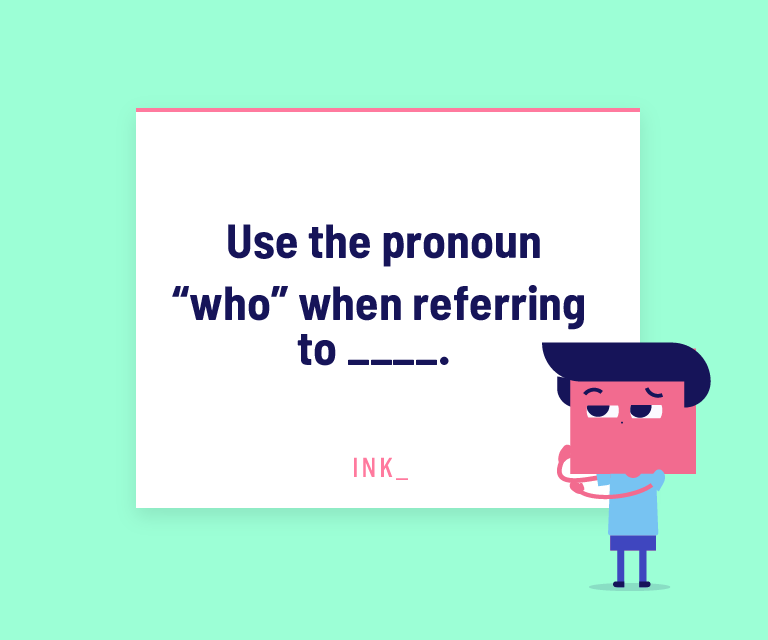

The answer is B. Use “who” when referring to the subject of a sentence.
Who vs. Whom Question #3
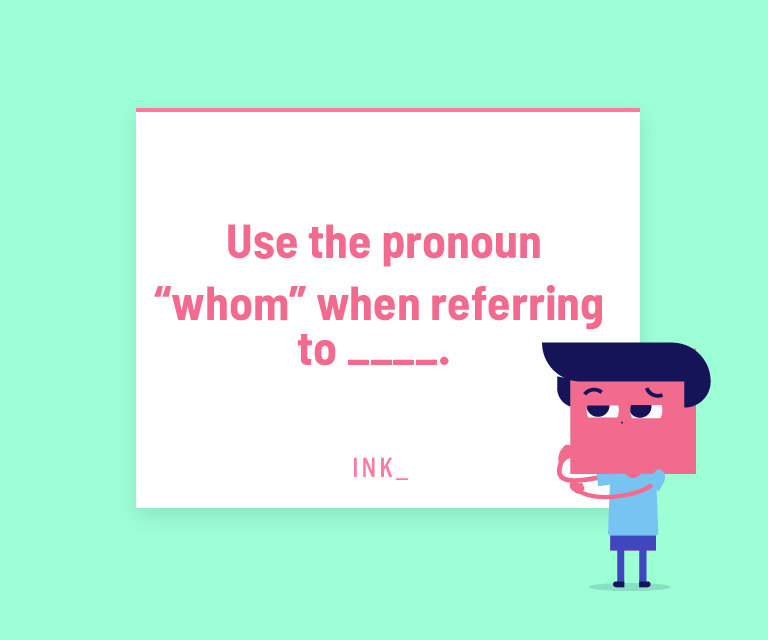

Please select 2 correct answers
The answers are A and C. Use “whom” when referring to the object of a verb or preposition.
Who or Whom Question #4


The answer is C. While it's easy to remember “him” because “m” is present, “her” will also do the trick.
Whom vs Who Question #5


The answer is WHOM. Here, “whom” refers to the object of the verb.
Who and Whom Question #6
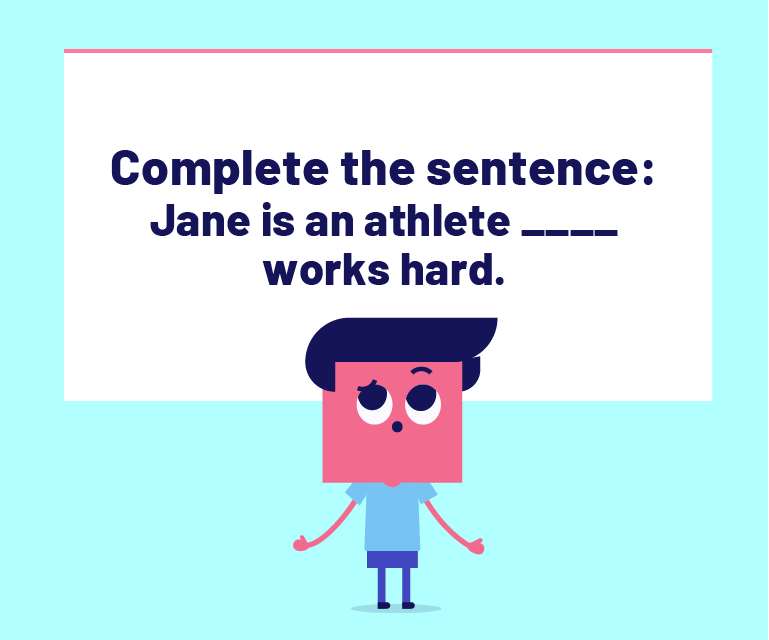

The answer is WHO. “Who” refers to the subject of the sentence.

